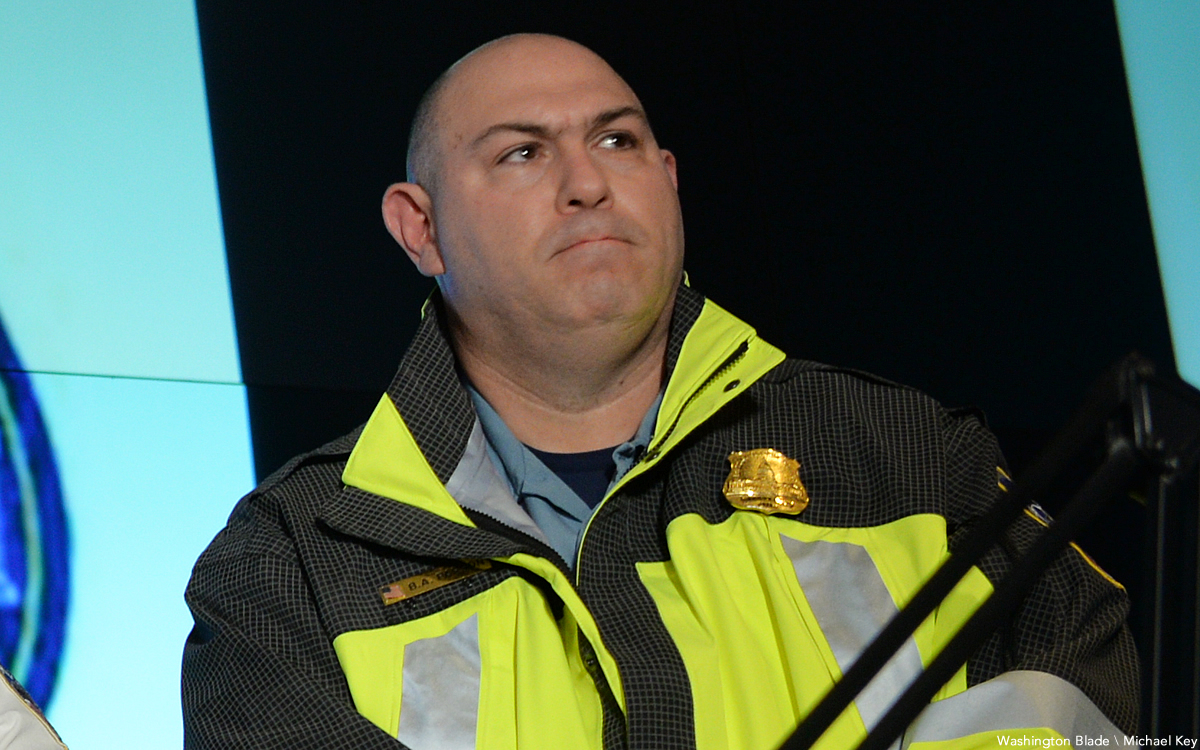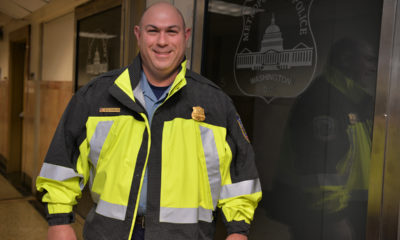Obituary
Norm Kent, co-founder of South Florida Gay News, dies at 73
Marijuana and LGBTQ rights champion, baseball fanatic, radio talk host passed away at home
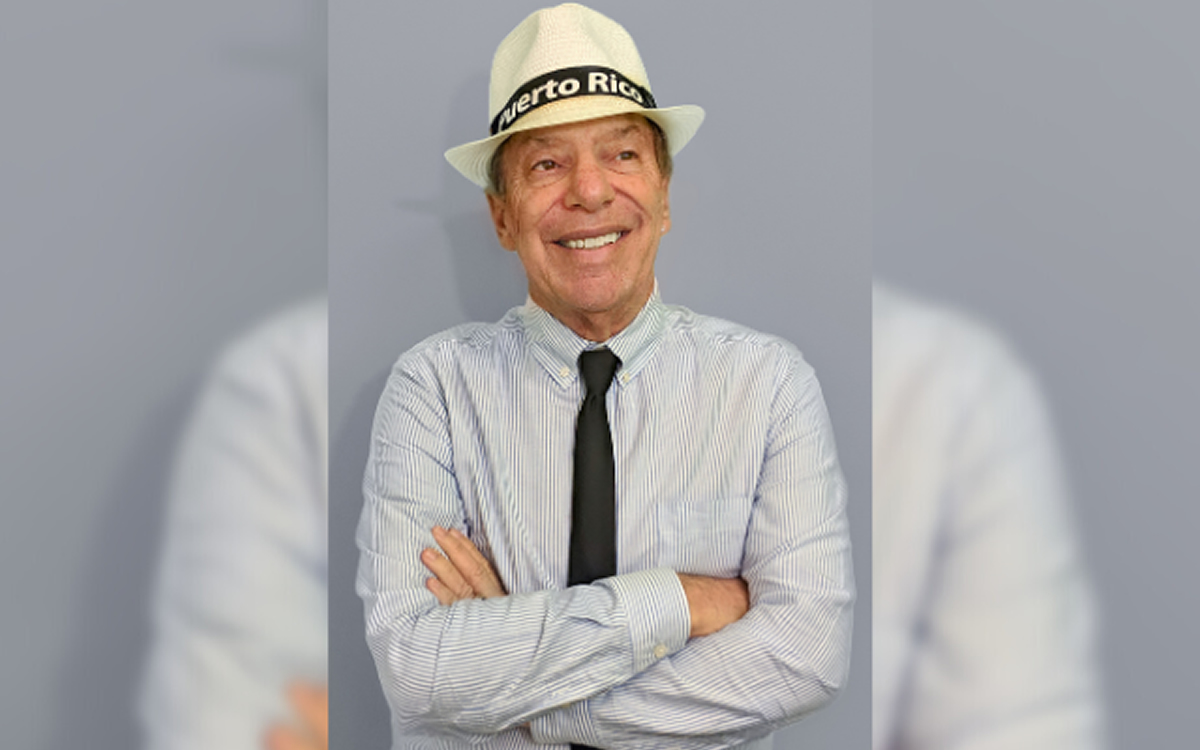
By Steve Rothaus for South Florida Gay News
Attorney Norm Kent — relentless fighter for marijuana and LGBT rights, baseball fanatic, popular radio talk host and co-founder of South Florida Gay News — died at 73 on April 13, 18 months after learning he had pancreatic cancer.
In his final interview on March 28, Kent told SFGN he was diagnosed in October 2021. “That day, I said, ‘Let’s fly to Atlanta and go to a Dodgers game. If they’re telling me I have cancer, we’re going to a baseball game.’”
“You definitely can’t accuse him of not being interesting,” said Fort Lauderdale attorney Russell Cormican, Kent’s law partner for nearly 25 years.
“The most important thing looking at Norm’s legacy is that he reminds us how important it is to stand up for what you believe in, no matter how unpopular it might be or what types of repercussions or blowback you might get from people, if you know what you’re doing is the right thing,” said Cormican, 51. “When he sees an injustice, he’s not afraid to lead the call against it. That’s the common thread that’s gone through his life.”
Born Norman Elliott Kent in Brooklyn, N.Y., on Oct. 18, 1949, his family soon moved to North Woodmere in Nassau County on Long Island.
“Ever since I was a little kid growing up in North Woodmere and taking Bus 53 to junior varsity games, I was a good, competitive baseball player. The doctor once said I had steel springs in my legs,” Kent said. “I just loved the game. I love it now because you don’t know what’s going to happen on the next pitch. It’s not scripted like a movie. Like comedians, you never know what the next joke is going to be.”
To never miss a game, Kent equipped his longtime small, two-bedroom Victoria Park home with 16 televisions.
“It looks like mission control,” Cormican said. “Heaven forbid there are four baseball games on. He has to see each one.”
Thirty years ago, he even owned a baseball card shop at the Gateway Shopping Center in Fort Lauderdale, Norm Kent’s Baseball Heaven.
Kent, who is survived by older brother Richard and younger brother Alan, once flirted with becoming a professional ballplayer but their dad Jesse told him, “You’re going to be the lawyer in the family.”
After graduating in 1971 from Hofstra University on Long Island with a bachelor’s degree in social sciences and sociology, Kent made his father happy and received a Hofstra law degree in 1975.
During college, Kent began establishing a national reputation as a leading proponent of legalizing marijuana use.
Kent joined NORML, the National Organization for the Reform of Marijuana Laws in 1971. He served 1992-94 on NORML’s national board, rejoined the governing body in 1998 and from 2013-14 served as national board chairman.
In 1988, Kent made headlines representing singer Elvy Musikka, a Hollywood woman nearly blinded by cataracts who was busted for growing pot in her own backyard.
“After 23 different operations for cataracts,” Kent recalled March 28, “she found the only thing that let her see was by taking marijuana. It had a certain THC in it which let her see.”
He continued: “Who was her government, or the president, to stop her from seeing? And when the police came to her house in Hollywood and said we’re going to have to arrest you for smoking pot, she said, ‘I dare you to. I don’t care. It’s my life. It’s my right to see.’
“She went to a lawyer. She went to me. And I said let’s go to court. We argued a case in [Broward Circuit Court] before Judge Mark E. Polen and we won. He said your right to smoke marijuana is a lot more important than the right of the government to tell you what to do with what you can smoke. That case became the seminal case for hundreds of others.”
While dying of cancer, Kent himself couldn’t find pain relief smoking marijuana: “No,” he said, “I had a respiratory condition in 2018 when I got a defibrillator and pacemaker.”
Shortly after college, Kent worked briefly as an urban affairs analyst for the New York Legislature, and in 1978 relocated to South Florida where his parents had moved.
Kent never officially told them he was gay.
“My parents always suspected he was gay from the time he moved to Fort Lauderdale,” said his brother Alan, a retired psychologist. “They would always ask me, ‘Do you think Norman is gay?’”
Alan Kent, who also is gay, came out to their parents in 1982. Five years later, after their father died, Norm called Alan from Provincetown, Mass., with some news: I’m gay.
“I said really? Tell me something I don’t know,” Alan Kent recalled.
Before he died, Norm Kent said that for him “there was no such thing as being in [the closet].”
“There was always this fear that as a gay lawyer it might cost me economically,” Kent said. “But there I was, a gay lawyer who was representing gay bars and gay friends and gay owners.”
Kent said that decades ago he never cared if people knew his sexual orientation. Once, a South Florida Sun Sentinel reporter interviewed Kent for a story and asked about rumors that he was gay — and then never published that he was.
“It’s not my job to do their thinking for them. It’s my job to be who I am. And I’m proud of every minute and moment of who I am and what I was,” Kent said. “And if that meant I was a faggot who could throw a baseball, that’s their problem.”
After he moved to South Florida, Norm Kent briefly wrote a column for Playbill magazine and taught sociology at Florida Atlantic University. Soon he became known locally as an advocate for runaway gay youths who hung out at Fort Lauderdale Beach.
On the strip, Kent interviewed 30 boys ages 12 to 20 working as prostitutes. By 1984, Kent had spoken with about 150 boys on the strip — a third of them said they had sold their bodies to survive.
For years, Fort Lauderdale police and politicians worked to downplay the local homeless problem, according to a 1989 Miami Herald profile of Kent headlined “Upholder of the Unpopular.”
“It was like the mayor in Amity denying that there was a shark out there,” Kent told the Herald, referring to the blockbuster 1975 film of the era, “Jaws.”
Kent spent the rest of his life advocating for homeless gay youth. In 2000 — after having just survived treatment for lymphoma — Kent met John Fugate, then 18 and disowned since middle school by his Lakeland family. Kent, who at the time published the Express Gay News in Fort Lauderdale, offered Fugate a job delivering newspapers.
“I was living under the bridge on Federal Highway just south of 26th Street,” Fugate said March 28, weeping, a few feet from Kent’s hospice bedside. “And Norman found out that I was sleeping on the street and he invites me to the Floridian Restaurant for dinner.”
That night, Kent told him: “I just want you to know if you ever need a place to stay, you can always stay at my house. Here are the keys.”
At first, Fugate said he was “too proud and scared” to come to Kent’s home. But a few weeks later, about 3 a.m. on a cold, rainy morning, Fugate showed up. Eventually, he moved in.
Despite their age difference, Kent, 53, and Fugate, 21, became partners. Seven years later, they ended their romantic relationship. But they remained close friends and continued to work together on and off. After Kent’s health began to decline in 2018, Fugate and his new husband Brian Swinford stepped in as Kent’s caregivers.
Fugate said Thursday that Kent died of a recently diagnosed lung cancer.
On April 10, Fugate posted on Facebook: “Sometimes you start to doubt your beliefs and wonder why it’s happening to good people and telling yourself why can’t the good people live in why does it have to be this way? I’m so lucky to have had Norm Kent in my life forever changed me to make me a better person, there’s no way on earth I could ever repay him or show him the love that I have for him other than being here for him now.”
Mark Possíen, Kent’s close friend since 1977, described his Victoria Park home as “a refuge for so many people.”
“If you were down and out, he would invite you to come and stay with him. He’d get you a job. If you were on drugs, he tried to get you off drugs,” Possíen said. “He was selfless. He did everything with no expectation of any kind or return or reward from the person.”
About 1991, Possíen moved into a spare room in the Victoria Park house where Kent helped him launch Catalog X, one of the first gay-owned mail-order adult toy businesses.
“I was Dildo Central!” Kent wrote in his final SFGN column published March 30.
By 1998, Possíen had opened two Catalog X retail stores, one in Fort Lauderdale, the other in South Beach. “It was a gay department store. We had everything we thought gay people would be interested in.”
Possíen, who closed Catalog X in 2003, now lives in Lake Worth. In late March, Kent told him that his “biggest disappointment” about having terminal cancer was not having enough time “to sue Ron DeSantis for the drag queen stuff.”
“He said, ‘I’ve taken on all these cases all my life, I didn’t make money on them and sometimes they cost me money,’” Possíen said. “When he saw something that was wrong or unjust, he wanted to fix it.”
During college on Long Island, Kent dabbled as a reporter writing for the local Jewish Journal and Nassau Herald.
Later in South Florida, Kent himself became a media celebrity.
“He’s lived his life in the public eye,” Kent’s brother Alan said. “Norman has done a lot of good stuff and he’s had a lot of recognition for what he accomplished.”
Norm Kent’s name frequently appeared in both the Sun Sentinel and the Miami Herald. Among his high-profile legal cases:
- Helping adult video store owners charged with obscenity in the 1980s.
- Representing the owners of nude dance clubs in the 1990s, when South Florida municipalities tried to shut them down.
- Defending countless men charged with public sex in restrooms, in parks and on beaches throughout South Florida well into the 2000s.
A 1992 case that got particular attention: When gay radio superstar Neil Rogers, Kent’s close friend, was charged with indecent exposure at an adult movie theater in South Beach.
“Millions” of other men were arrested under the same circumstances, Kent recalled March 28.
“Only straight men would go free. … And people like Neil would get into trouble. I said ‘What the hell is going on here? This isn’t right. This isn’t fair to gay people.’ Over the years, so many would be wrongfully and unjustly arrested and prosecuted.”
From 1989 to 1992, Kent had his own daily talk show on WFTL AM. Later, he hosted various radio programs including one broadcast live during the breakfast rush at the Floridian on Las Olas Boulevard.
He also represented Rogers in the radio business. “I wound up making him, as his agent, $1.5 million a year,” Kent said.
Kent said that for years, Rogers made fun of him on the radio and elsewhere, sometimes referring to him as “Norma.”
“Do you know that they gave me an award for donating money to the Broward General Cancer Society in 2000,” Kent recalled. “And they put my name up on a plaque. And one of the ladies who made the plaque, she really thought my name was Norma. She didn’t put ‘Norman Kent’ on the plaque. She put ‘Norma.’ I said, ‘Neil, you did that.’ We thought that was hilarious.”
In 1999, Kent took on a new title: Newspaper publisher. He launched the Express Gay News, which covered all aspects of queer life in South Florida.
Kent sold the paper four years later to Window Media, a national LGBT media group that renamed it the South Florida Blade. Window Media went bankrupt in November 2009 and quickly shut down the Blade. Most of the staff of the Blade reorganized and launched the Florida Agenda, which shut down in 2016.
In January of 2010 Kent launched a new newspaper and website called South Florida Gay News, along with a new business partner Piero Guidugli, who stayed with the company until 2020.
Celebrating 400 issues of SFGN in 2018, Kent and Guidugli highlighted a few of their most compelling stories, including:
- A five-year long program of entrapment by two West Palm Beach policemen who had entrapped more than 300 men.
- Hollywood police fired officer Mikey Verdugo in 2010 after the department learned he had appeared in a 15-minute gay porn scene 14 years earlier. (Verdugo now owns Bodytek Fitness in Davie and Wilton Manors.)
- The 2010 firing of licensed practical nurse Ray Fetcho AKA drag queen Tiny Tina, when it came out that 35 years earlier Fetcho had been charged with a lewd act for hosting a wet jockey shorts contest at the old Copa nightclub in Fort Lauderdale. (Fetcho died at 68 of cancer and diabetes in 2015.)
In 2016, Kent wrote in a publisher’s column about the last of the big gay bar raids in Broward County, when in 1991 then-Sheriff Nick Navarro created a media spectacle arresting men at the Copa and at Club 21 in Hallandale Beach.
“Sheriff Navarro orchestrated the raid as if he were hosting a Hollywood opening,” Kent wrote. “As the news report by Steve Rothaus indicates, the sheriff turned the raid into a media event, placing the entire LGBT community in a false light. Navarro arrived on the scene, believe it or not, in a helicopter, accompanied by his wife, dressed in an evening gown. Reporters were shocked by the crass celebration, amazingly accompanied by foreign Russian dignitaries to show off for.”
Kent said he never regretted publishing a story, even if it got him into hot water with local power figures, including activists and elected officials.
“It’s the newspaper. It’s what editorial cartoons are all about,” he said. “It’s not for the politician to be thin skinned. It’s for the politician to go naked before the canon and accept the fact that he, too, can be criticized no matter how good they think they are.”
The past five years, Kent suffered several life-threatening health setbacks. He had two brain surgeries to remove tumors, COVID in 2021 and then the pancreatic cancer diagnosis.
Last September, he stepped down as publisher and handed the running of SFGN to Associate Publisher Jason Parsley.
“Jason has established himself as a very powerful voice, not afraid to stand up to anybody,” Kent said March 28.
Parsley, 45, a one-time hair stylist who in 2007 got a journalism degree from Florida Atlantic University, has worked at SFGN since 2011.
These days, a local LGBT newspaper and website are more important than ever, Parsley said.
“Our stories, need to be told, must be told,” he said. “Unlike big corporate media, an LGBT paper is invested in the community.”
“You have a hostile legislature that wants to silence and erase our voices and stories. And because this isn’t taught in school, places like the gay media are where you are going to be informed and educated and learn about the queer community.”
Parsley said Kent “had a passion for journalism and being a storyteller.”
“He leaves a long legacy of journalism and a dogged pursuit of the truth,” Parsley said. “He wasn’t just a news reporter. He also wrote scathing and biting — truthful — editorials that would sometimes call out members of our own community and push the ball forward.”
Journalist Steve Rothaus covered LGBTQ issues for 22 years at the Miami Herald. @SteveRothaus on Twitter.
Norm Kent’s eloquence and outlook on life expressed in final column
Thirteen days before his passing, on March 30, South Florida Gay News published an opinion column written by Norm Kent entitled, “What is Hospice and What it Means to Me,” in which he movingly and eloquently described his outlook on life and his passion for journalism as noted by those who knew him.
“Last week, the doctors told me about a new and invasive cancer and tumor that would require even more sudden and maybe midnight trips to the ER and hospitals, ending the day with newer needles in my arms and weakening veins,” Kent wrote.
“Nope, no more,” he continued. “I think I have done my share for here and now. An activist for gay rights and your rights; for NORML and human rights. Your body. Your life. Your call. I hope I have made you proud.”
He reminisced about his life experiences and those dear to him along with loved ones who have been at his side during his illness before stating, “So folks, that all brings me to home health care hospice, like President Jimmy Carter has just done. It’s not to say goodbye, but to thank you for the many hellos. From the many memories; from your local hospitality establishments and homes and businesses.”
And in keeping with his philosophy on life, Kent concluded by saying, “Keep on doing what is right, remembering what is right is not always popular, and what is popular is not always right. You will always find a path belonging to you. Like Yogi Berra, New York Yankees Hall of Famer once said, ‘When you come to a fork in the road, take it.’ It’s your own. Forever.”
— Lou Chibbaro Jr.
Obituary
Longtime DC resident Thomas Walsh dies at 87
Pa. native’s husband was by his side when he passed away
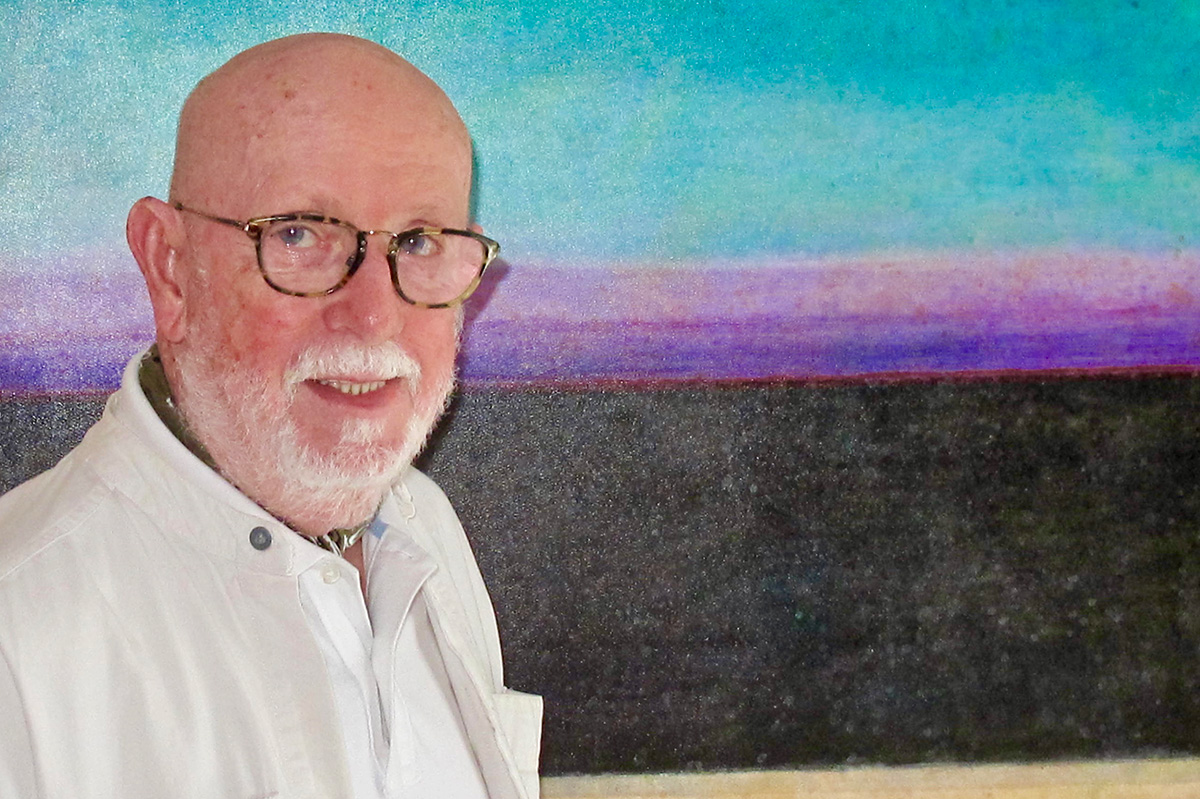
Long-time D.C. resident Thomas Walsh died on May 16. He was 87.
Walsh was born on Sept. 17, 1937, in Scranton, Pa. His family later moved to Levittown, Pa.
Walsh met his husband, Anthony Carcaldi, at the Blue Note, a gay bar in Asbury Park, N.J., in 1964.
“I walked in the bar with friends from New York City,” recalled Carcaldi. “I looked at the piano and this person was singing … and all I noticed were his blue eyes.”
Walsh was singing “Because of You.”
“I walked up to the piano while Tom was singing and stared at him, which caused him to forget the words,” said Carcaldi. “He composed himself and started from the beginning.”
Carcaldi and Walsh became a couple in 1965, a year after they met, when they moved to Philadelphia.
“We moved in together and have been together ever since,” said Carcaldi.
Walsh was a freelance graphic designer until he accepted a job in Temple University’s audiovisual department. Walsh and Carcaldi moved to D.C. in 1980.
Walsh began a graphic design business and counted Booz Allen as among his clients. Carcaldi said one of his husband’s “main loves was painting,” and became a fine artist in 2005.
Walsh showed his art at the Nevin Kelly Gallery on U Street, the Martha Spak Studio near the Wharf, and at the Wexler Gallery in Philadelphia. Walsh also sang with the Gay Men’s Chorus of Washington.
Walsh and Carcaldi married at D.C. City Hall in 2014.
“Tom and I have been together since 1964 until his death,” said Carcaldi. “Tom died peacefully with me at his side in bed on May 16, 2025, holding Tom in my arms as he made the transition out of life.”
A celebration of life will take place in September.
Obituary
Beloved schoolteacher, D.C. resident Patrick Shaw dies at 60
Colleagues, friends say he ‘touched so many lives’ with warmth, kindness
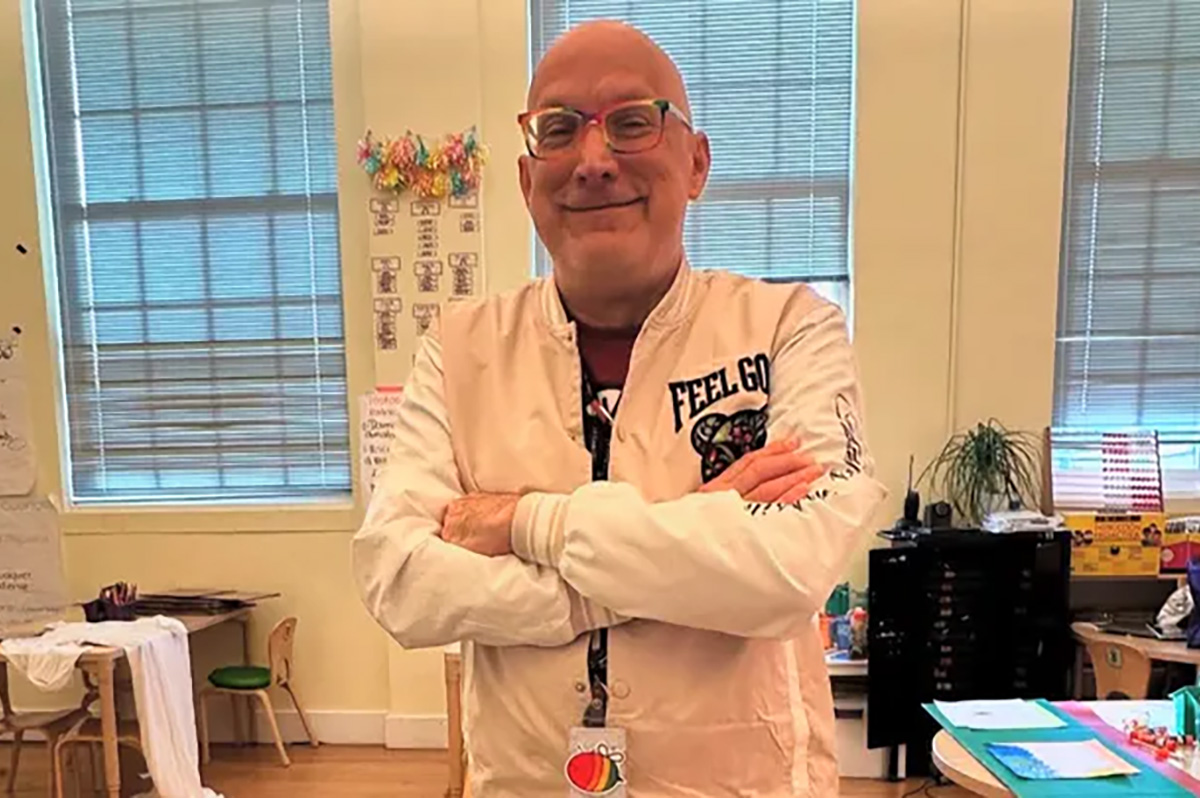
Patrick Dewayne Shaw, a highly acclaimed elementary school teacher who taught and served as vice principal in several D.C. schools since moving to the District in 2002, died April 19 at the age of 60.
His friend Dusty Martinez said his passing was unexpected and caused by a heart related ailment.
“Patrick touched so many lives with his warmth, humor, kindness, and unmistakable spark,” Martinez said in a statement. “He was a truly special soul – funny, vibrant, sassy, and full of life, and we are heartbroken by his loss,” Martinez wrote.
Among those reflecting on Shaw’s skills as an educator were his colleagues at D.C.’s Mundo Verde Bilingual Public Charter School, where he served as a second-grade special education teacher since August 2023.
“Patrick brought warmth, joy, and deep commitment to Mundo Verde,” his colleagues said in an Instagram posting. “His daily Broadway sing-alongs, vibrant outfits, and genuine love for his students filled our community with energy and laughter,” the posting says.
Biographical information provided by Martinez and Karen Rivera Geating, a senior inclusion manager at the Mundo Verde school and Shaw’s supervisor, shows Shaw had a distinguished 38-year teaching career and multiple degrees in the field of education.
He was born and raised in Little Rock, Ark., and graduated from Little Rock’s Catholic High School for Boys.
He received two bachelor’s degrees, one in philosophy from St. Meinrad Seminary College in Indiana and one in elementary education from the University of Minnesota in St. Paul.
The biographical information shows Shaw received three master’s degrees. One is in secondary education and history from the University of Arkansas at Little Rock. His second master’s degree is in special education from The Catholic University of Washington, D.C. His third master’s degree is in school administration from Trinity College in D.C.
Shaw began his teaching career in 1987 in Little Rock, Ark., as a fourth grade General Education Teacher at Our Lady of Good Counsel School and a short time later at Little Rock’s St. Theresa Catholic School as a fourth-eighth grade teacher through December 1989.
He next moved to Minnesota where he spent part of the 1990s as a fifth and sixth grade teacher and a physical education instructor, according to biographical information. His resume shows that from January 1995 to December 1998 he was associated with the Minnesota AIDS Project in Minneapolis.
He “recruited, interviewed and staffed volunteer education and transportation programs for people living with HIV and AIDS,” his resume states.
Shaw next returned to Little Rock where he served from January 1998 to December 2004 as Theology Department Chair at the Mt. St. Mary Academy. His work included creating theology lessons for ninth-12th graders and creating a social justice program for 12th graders.
Upon moving to D.C., Shaw served as classroom teacher and vice principal at several schools, including the D.C. Public School’s Benning Elementary School; vice principal at Chavez Prep Public Charter School; vice principal at Bridges Public Charter School; Special Education Coordinator at Monument Academy Public Charter School; and Special Education Case Management and Math Intervention Specialist at D.C.’s College Preparatory Academy for Boys.
“Patrick dedicated 38 wonderful years to teaching, from 1987 to 2025, inspiring generations of students with his passion, wit, and kindness,” Martinez said in his statement.
Shaw was predeceased by his mother, Myrna G. Shaw, and is survived by his father, Thomas H. Shaw, his brother, James Shaw (Michele), his sister, Angela Mahairi (Wafai), and his cherished niece and nephews Austin, Tariq, Reed, Ramy, and Jasmine, according to information provided by Martinez.
Martinez said a funeral mass would soon be held in Little Rock, Shaw’s hometown.
“His family will be honoring one of his last wishes,” Martinez wrote, “to be returned home and remembered in a unique and meaningful way” – by having a tree planted in his honor, “a living tribute to the full and beautiful life he lived.”
Details of the location of the planted tree will be shared soon to offer a place where “friends and family can visit, reflect, and stay connected with his spirit,” Martinez states.
In D.C. a celebration of life for Shaw is scheduled to be held Saturday, May 3, from 2-5 p.m. at JR.’s bar at 1519 17th Street, N.W. Martinez points out that the tribute will be held during JR.’s weekly Saturday “Showtunes” event, in which sing-along performances of famous Broadway musicals are shown on video screens.
“JR.’s Saturday Showtunes were one of Patrick’s absolute favorite traditions, and gathering in that spirit feels like the perfect way to honor him,” Martinez said.
“Many have asked how they can help,” Martinez concludes in his statement. “In response we’ve created a GoFundMe page to support funeral expenses, help find a loving home for Patrick’s beloved dog, Birdie, and assist with other needs during this difficult time.”
Any remaining funds, according to Martinez, will be donated to a charity “that reflects Patrick’s passions and values.”
The GoFundMe page can be accessed at: gofundme.com/f/honoring-patrick-shaws-vibrant-legacy.
Obituary
Local attorney, LGBTQ rights advocate Dale Sanders dies at 75
Acclaimed lawyer credited with advancing legal rights for people with HIV/AIDS
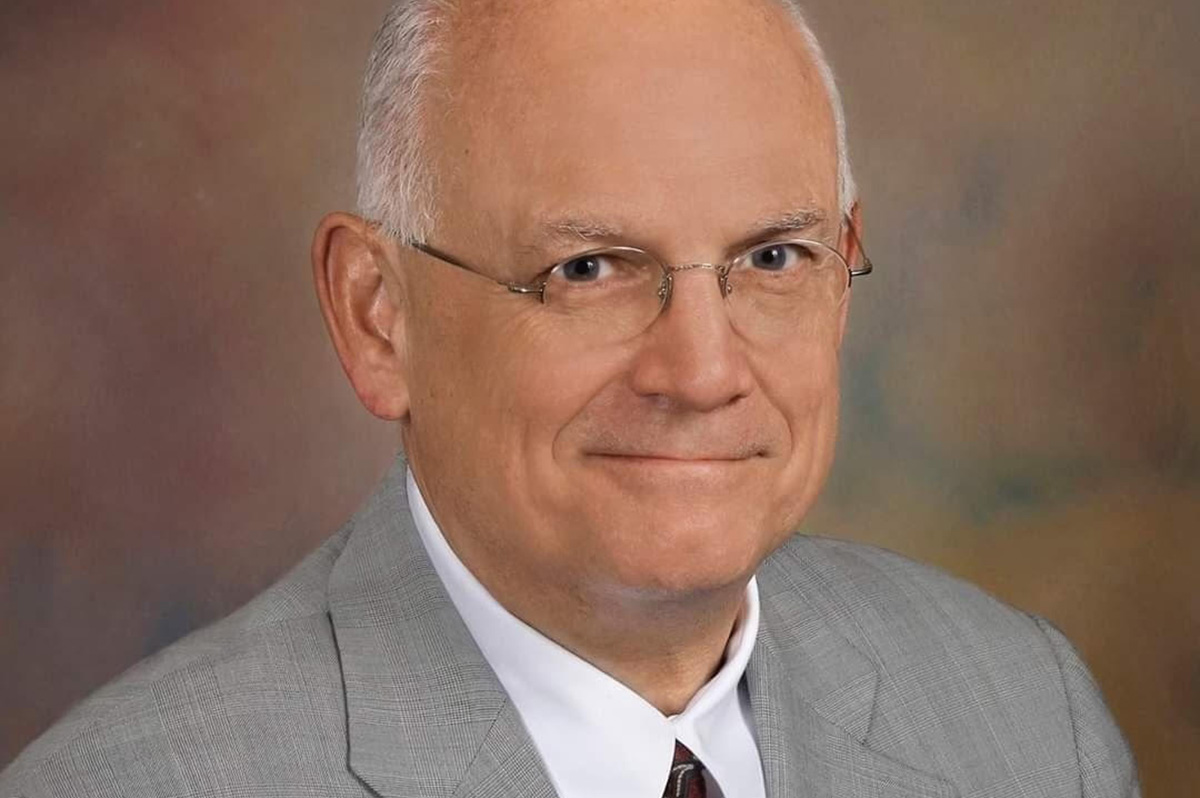
Dale Edwin Sanders, an attorney who practiced law in D.C. and Northern Virginia for more than 40 years and is credited with playing a key role in providing legal services for people living with HIV/AIDS beginning in the early 1980s, died April 10 at the age of 75.
His brother, Wade Sanders, said the cause of death was a heart attack that occurred at Johns Hopkins Hospital in Baltimore shortly after he had back surgery.
Wade Sanders described his brother as a “trial lawyer, passionate criminal defense, and civil litigator for human rights” for close to 50 years, with some of his work focused on “civil law, notably gay-related insurance discrimination during the AIDS epidemic.”
He called his brother “a zealous advocate for the oppressed, his clients, and his personal convictions.”
Born in Arlington, Va., and raised in McLean, Va., Dale Sanders graduated from Langley High School in McLean and received his bachelor’s degree from the University of Virginia, his brother said. He received his law degree from D.C.’s American University Washington College of Law and began his law practice in 1976 in Old Town, Alexandria, Wade Sanders said.
Amy Nelson, director of Legal Services for D.C. ‘s Whitman-Walker Health, said Sanders became one of Whitman-Walker’s original volunteer pro-bono attorneys in the 1980s.
“Dale was a beloved part of the legal services program and our medical-legal partnership for nearly 40 years,” Nelson said. “Dale was one of the clinic’s first volunteer attorneys at Whitman-Walker’s weekly, legal walk-in clinic offering free counseling to clients about their legal rights in the face of HIV/AIDS and LGBT discrimination from employers, landlords, medical providers, and insurance companies,” according to Nelson.
Nelson added, “Dale represented dozens of people impacted by the ignorance and prejudice attendant to an HIV/AIDS diagnosis, and his litigation wins were instrumental in advancing the legal rights of persons living with HIV/AIDS.”
Sanders’s most recent case on behalf of Whitman-Walker took place in 2023 in support of a transgender woman in Virginia who faced discrimination from her employer and health insurer, Nelson said.
In 1989, Whitman-Walker presented Sanders with its Gene Frey Award for Volunteer Service, and in 1994 presented him with its Founders Award for Pro Bono Legal Services, Nelson told the Blade. She said in 2024, Whitman-Walker re-named its annual Going the Extra Mile Pro Bono Award as the Dale Sanders Award for Pro Bono Excellence.
“Dale’s legacy helped to shape HIV/AIDS law, and his fierce commitment to justice will live on at Whitman-Walker Health,” Nelson said in a statement. “We will miss him dearly.”
Daniel Bruner, who served as Whitman-Walker’s legal services director prior to Amy Nelson taking that position, said Sanders played a role in shaping his own legal skills and knowledge.
“Dale was one of my earliest legal models among local, and national, advocates for people living with HIV and LGBT people,” Bruner told the Blade. “He was a fierce, persistent advocate for his clients and for the community,” Bruner said, adding, “He won key victories in several cases where employees’ or health care patients’ privacy had been egregiously violated. I certainly will never forget him.”
Wade Sanders said his brother was also an avid bridge player, saying he played competitively. “He earned the rank of Ruby Life Master, a pretty big deal in the bridge world,” Wade Sanders said.
Dale Sanders is survived by his husband, Christian Samonte; his sister, Joyce Sanders of York, S.C.; his brother Wade Sanders of West Jefferson, N.C.; and his beloved dogs Langley and Abigail, his brother said in a statement.
A memorial service for Dale Sanders organized by the Sanders family and the LGBTQ Catholic group Dignity Washington will be held Saturday, May 10, at 1 p.m. at St. Margaret’s Episcopal Church at 1830 Connecticut Ave., N.W. in D.C., a Dignity Washington spokesperson said.
-

 U.S. Supreme Court2 days ago
U.S. Supreme Court2 days agoSupreme Court to consider bans on trans athletes in school sports
-

 Out & About2 days ago
Out & About2 days agoCelebrate the Fourth of July the gay way!
-

 Maryland5 days ago
Maryland5 days agoSilver Spring holds annual Pride In The Plaza
-

 Opinions5 days ago
Opinions5 days agoSupreme Court decision on opt outs for LGBTQ books in classrooms will likely accelerate censorship

